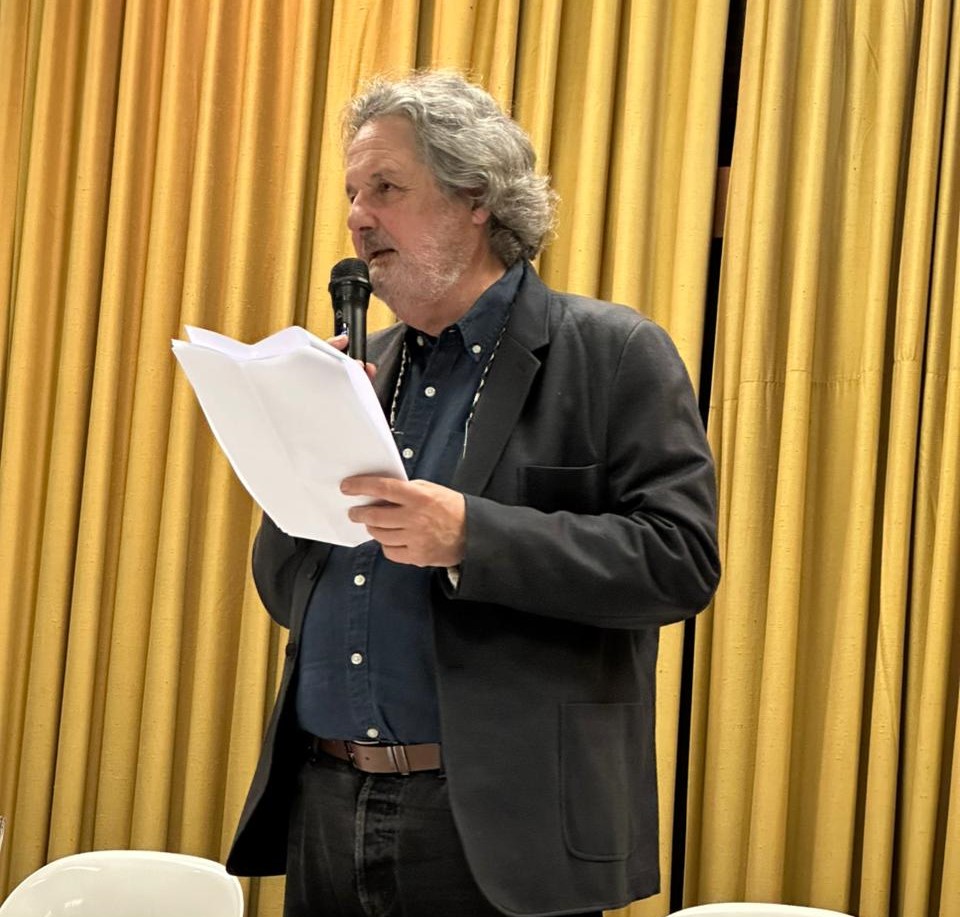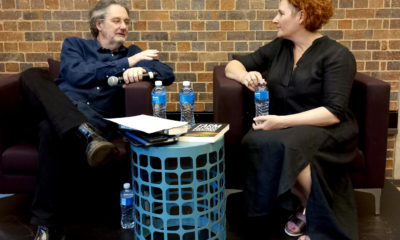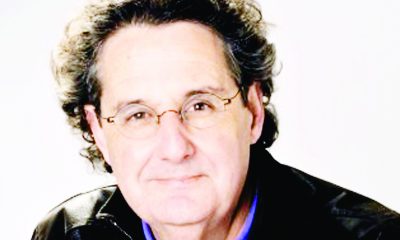
Featured Item

‘Less censorship is better – even on the internet’
Franz Auerbach, the late Holocaust survivor and human rights activist, would have been lost in the morass of social media today, said veteran media specialist Professor Anton Harber, the executive director of the Campaign for the Freedom of Expression.
At the annual memorial lecture in tribute to Auerbach, the late educationist and liberal humanist, Harber said Auerbach would have struggled to be heard in today’s social media discourse due to its pervasive nature and lack of regulations.
However, Harber believes that freedom of expression is nevertheless vitally important, “not just because we like to be free to say what we like”.
“Nobody liked it more than Franz Auerbach, but it’s important because it’s the most fundamental part of our democracy and our economy. It’s the right that gives the space and power to all our other rights,” Harber told the 18th Franz Auerbach Memorial lecture at Beit Emanuel Shul on 21 November.
“The media today often forgets how important the free flow of information is to the effective running of our economy,” said Harber. “The right to hold and express strong and divergent – even uncomfortable –views is the most powerful tool we have to tackle crucial issues of inequality.”
Harber said that today, the main way we voice our opinions is through social media.
“Around the world, citizens have used the digital space to rise against authoritarian regimes and advocate for change in democracies. It has proved to be a most powerful weapon in the hands of those fighting tyranny and oppression, disposing of wrongdoing, and mobilising against it, whether it was during the Arab Spring; Black Lives Matter; MeToo campaign; the plight of the Uyghur in China; or Alexei Navalny’s campaign against President Vladimir Putin. We have witnessed the use of social media in all four corners of the world.
“Social media shapes public debate, and mostly it’s fragmented, abrupt, rude, consists largely of assertions, sideswipes, and shout-outs,” said Harber, “not to speak of how it’s unfiltered, riddled with disinformation, and often stoops to harassment and abuse.”
Auerbach was a prolific letter-to-the-editor writer, and would often criticise the political policies of the day through his many writings, which used measured language. Today, however, Auerbach would fail to be heard among the noise of social media, Harber said. This is because social media favours provocative, aggressive, and conflictual material over careful argument and delicate wording.
“Outside of extreme cases, there are no clear lines between information, mistaken information, and disinformation, nor between abuse, offensiveness, and hate speech,” said Harber.
But Harber advocates for less censorship on any programme. Such measures, if done carelessly, can do more harm than good, he said, and it usually comes down to two issues – discrimination and hate speech.
In several African countries, the new laws against online disinformation are used primarily against journalists, Harber said, because you can label what they do as disinformation quite easily. Similarly, something might be offensive, but it quickly gets labelled as hate speech.
“What we must target is speech that presents clear and present danger, and leave the rest alone. If we are to prevent a negative impact on free speech and protected speech, then we need to target only that.”
Said Harber, “Social media has opened up our discourse, but it hasn’t democratised it as was originally hoped. We learned over time that the internet was brilliantly constructed to make it hard for governments to control. It’s not impossible, as the Chinese have shown us, but extremely difficult.”
What emerged, though, were a few dominant platforms under the control of a small set of billionaires with absolute control over the algorithms that determine what information we receive and consume.
Said Harber, “We thought that the internet would bring a world with fewer gatekeepers, and it is a world with fewer gatekeepers, but we didn’t realise just how few and how powerful they would be.”
He said the value of open information and discussion, of free speech, outweighed its abuse. This could only be achieved by establishing a system whereby the platforms where the content is held – such as newspapers or news stations – are held to account.
The internet, however, is a completely different beast as there is no universal standard among the many social media platforms.
“Never has there been an institution that can exert such control over what is being said, read, and shared around the world,” Harber said.
He explained that through each social media platform’s algorithms, the owners of those platforms can show us what we want to see and can do so because of the personal information they store, pointing out that Facebook probably knows more about ourselves than we do.
Panic about the dangers of social media isn’t unfounded, Harber said. “Every new media technology has brought panic, an elite panic, a fear that it will spread dangerous disinformation, undermine the status quo, and be controlled from above.”
The radio once posed a danger to the parents of teenagers in 1936. Newspapers wrote in 1984 about the dangers of a landline telephone. Television was often compared to a narcotic, as were at different times novels, comic books, computer games, and videos.
“But with the internet, the panic is particularly acute,” said Harber, “because disinformation and hate speech spread so fast, so wide, so perniciously in this new medium.
“The panic follows a regular pattern,” he said, “First, there is unbridled hope in a new technology, then a period of disillusionment and abuse, which often leads to attempts to control and over-control, even suppress, and then over time, society learns how to manage these technologies. They are, after all, just tools that can be used for good or bad, and almost always are used for both.”










